Apr 2, 2024 12:59 PM
Saxophonist, Sonic Explorer Casey Benjamin Dies at 45
Casey Benjamin, the alto saxophonist, vocalist, keyboardist and producer who stamped his distinctive sounds on the…
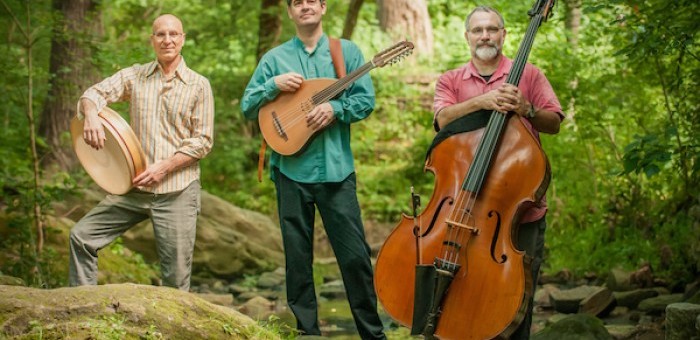
River Guerguerian (left), Chris Rosser and Eliot Wadopian are Free Planet Radio (Photo: Jesse Kitt)
(Photo: )Asheville, North Carolina, may seem like an unlikely place for a world jazz trio to be flourishing, but Free Planet Radio has thrived in the rarefied Appalachian air. The group recently released its third album, Global Symphony Project, which features the usual lineup—multi-instrumentalist Chris Rosser, bassist Eliot Wadopian and percussionist River Guerguerian—joining with the Opal String Quartet for some musical genre bending.
“It’s a very open-minded place,” says Guerguerian, a veteran of tours with Omar Faruk Tekbilek and others. “You have the Billy Graham Freeway going through the Buddhists’ backyard. Asheville allows us to put it all together, experiment with it, and come out with something unique.”
Rosser, whose skills were on display in vocalist Lizz Wright’s touring band last year, acknowledges their good fortune.
“The three of us had very similar musical backgrounds. We all went to music school, studied jazz and classical music, and then on our own have been studying Indian and Middle Eastern and African music. It’s unusual that three guys happened to find each other that had the same interests.”
“Everybody who finds a musical family understands how special that is,” says Wadopian, a longtime member of the Paul Winter Consort. “Our initial thought was to combine what we already know—which is jazz and American folk music and European classical music—with the world thing, making some new and interesting grooves and sounds and combinations of instruments. We give people something other than their normal comfort zone, and maybe help folks learn something new.”
The group is celebrating 15 years together, and Rosser likens their fusion to a Venn diagram. “If you think of the circles, a circle means classical music, a circle means jazz, a circle means folk music, another means Turkish music—this band is more interested in where those circles overlap,” he says. “Almost always there’s a little bit of the jazz circle in there, no matter what we’re doing. There’s often improvisation in it.”
Global Symphony Project features several compositions with room for improv, not unlike a big band chart, according to Wadopian. “A big band chart is a good analogy,” Guerguerian says. “It’s not like we always just have a head, solos head, like a regular jazz combo. The thing that we borrowed from classical and other types of music is the different colors and textures and palettes that we use. I’m not just playing one thing or one instrument the whole time. I make a conscious effort to orchestrate and to change. When you’re a trio you have more sonic space. You make up one-third of the canvas.”
Wadopian thinks their similar interests drew them together. “It’s a shared vision. I think like-minded individuals seek each other out,” he says. “I was listening to Chris Rosser in the ’90s and was blown away by this tall singer-songwriter humming and strumming and then picking up a rhombus oud and playing a song on that. And then hearing River’s amazing frame drum playing—I’d had experiences with that outside of Asheville with musical endeavors, and it was awesome to find cats that were listening to some of the same stuff.”
The three musicians do a lot of studio work around Asheville, and they all tour as sidemen with different artists. They just recorded with the Asheville Symphony and vocalist Wright, and the band has taught residencies at several music schools.
Global Symphony Project began when Rosser successfully applied for a Chamber Music America grant for jazz and world groups. The grant paid for compositions and three performances.
“Chris’ genius really showed through in his ‘Ecstatic Verses,’” says Wadopian. “It’s a varied work, using some interesting Middle Eastern musical techniques, applying that to a classical string quartet.
“Classical music influences us. At first somebody might listen to our songs and not think that, but doing it with the string quartet really blended the two worlds not just conceptually, but sonically. Maybe that’s why people are digging it—as you go to different theaters around the world, audiences for world music and jazz music and classical music have all kind of combined.”
Besides Rosser’s “Ecstatic Verses,” Global Symphony Project features the Wayne Shorter-esque “Doctor Zhombus,” the energetic drum ’n’ bass of “City Nature,” the exhilarating 7/8 of “Hijaz Mandra,” the microtonal intrigue of “Hamza,” the uncluttered beauty of the tango “Cancion De Baile” and the ballad “Simple Folk,” as well as the tasty bounce of “Backyard Bhangra.”
“That’s kind of like our Appalachian Bollywood song,” Rosser smiles. “There’s a lot of diversity between the pieces, not like one color and sound for twelve tracks.”
The Opal String Quartet (Kara Poorbaugh, viola; Franklin Keel, cello; Mariya Potapova, violin) adapted to all the styles.
“What we were throwing at them was a little different, and they hung in there. It took a little work, but they got it,” Wadopian says. “They were open and they listened, and odd times aren’t that hard if you break it down to just twos and threes. They were open to learning, and that was what was so beautiful about it.”
For more information visit www.freeplanetradio.com
Robin Tollesen
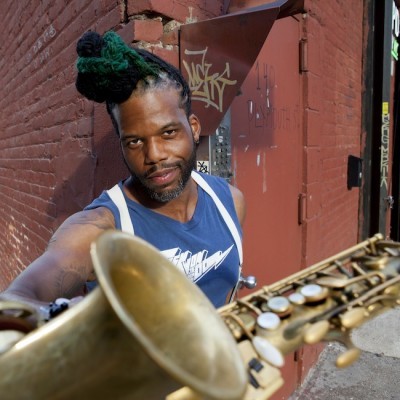
Benjamin possessed a fluid, round sound on the alto saxophone, and he was often most recognizable by the layers of electronic effects that he put onto the instrument.
Apr 2, 2024 12:59 PM
Casey Benjamin, the alto saxophonist, vocalist, keyboardist and producer who stamped his distinctive sounds on the…
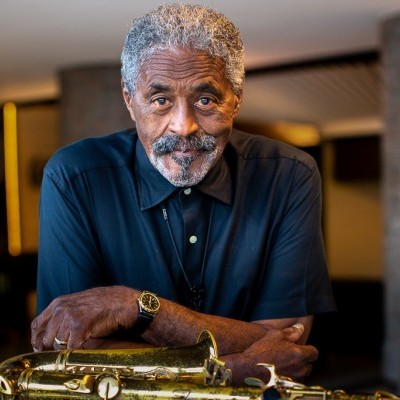
“He’s constructing intelligent musical sentences that connect seamlessly, which is the most important part of linear playing,” Charles McPherson said of alto saxophonist Sonny Red.
Feb 27, 2024 1:40 PM
“I might not have felt this way 30 to 40 years ago, but I’ve reached a point where I can hear value in what people…
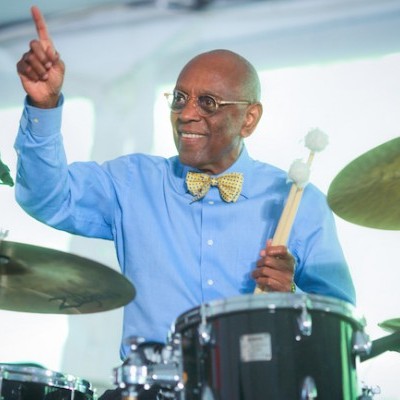
Albert “Tootie” Heath (1935–2024) followed in the tradition of drummer Kenny Clarke, his idol.
Apr 5, 2024 10:28 AM
Albert “Tootie” Heath, a drummer of impeccable taste and time who was the youngest of three jazz-legend brothers…
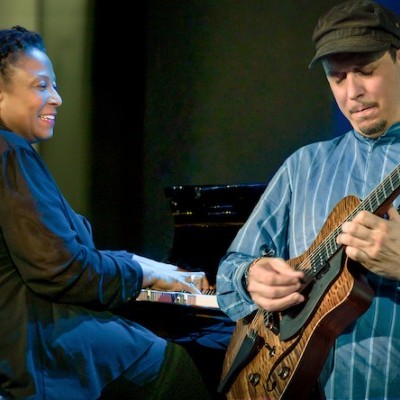
“Both of us are quite grounded in the craft, the tradition and the harmonic sense,” Rosenwinkel said of his experience playing with Allen. “Yet I felt we shared something mystical as well.”
Mar 12, 2024 11:42 AM
“There are a few musicians you hear where, as somebody once said, the molecules in the room change. Geri was one of…
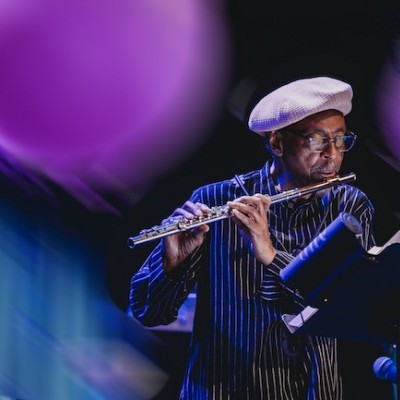
Henry Threadgill performs with Zooid at Big Ears in Knoxville, Tennessee.
Apr 9, 2024 11:30 AM
Big Ears, the annual four-day music celebration that first took place in 2009 in Knoxville, Tennessee, could well be…